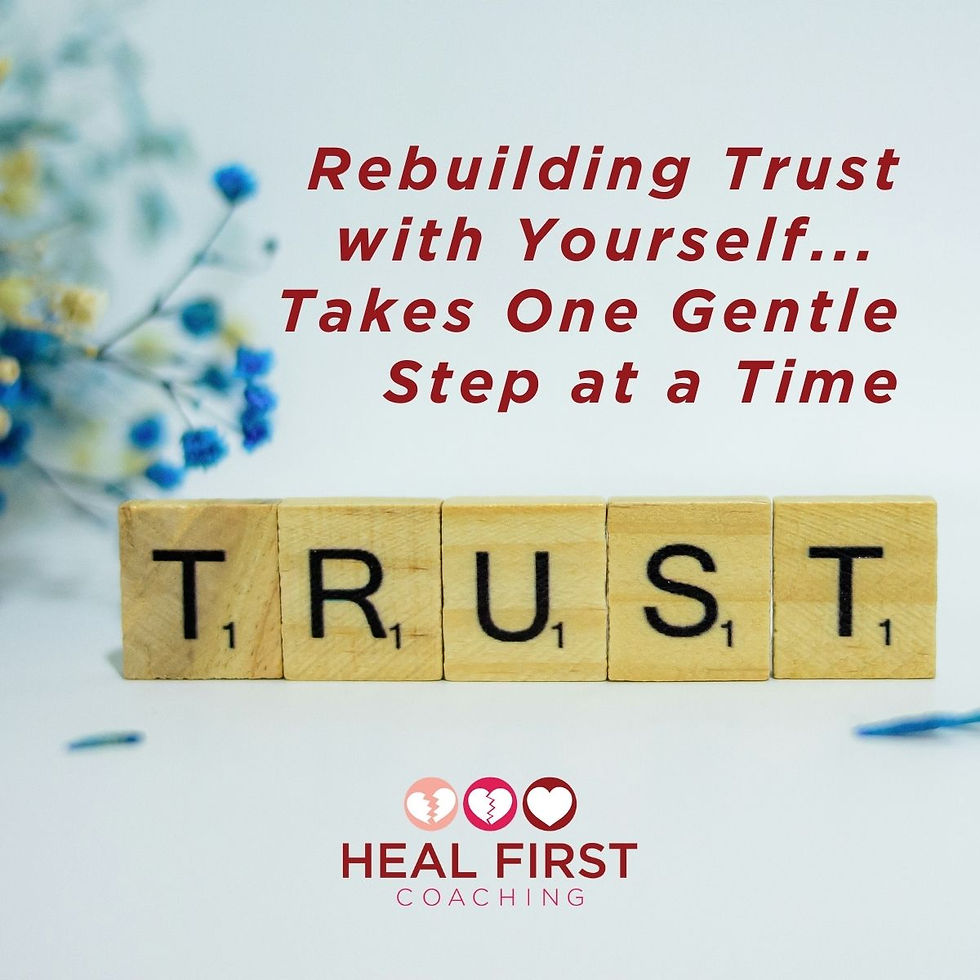Divorce and Mental Health Issues: Coping Strategies
- Samantha Tishner

- Oct 3, 2024
- 7 min read
Can you come out of divorce without scars, or is it bound to affect your mental health? Studies show that about 40-50% of married couples in the United States end up getting divorced. Divorce can shake your world and make daily tasks hard. It's common to feel sad, angry, and anxious about the future.
Research shows that divorce can lead to mental health problems like depression and anxiety. Around 25% of people going through a divorce experience clinical levels of depression and anxiety. It's okay to feel overwhelmed as you start anew.

Divorce can also affect your job performance, making it hard to focus and be productive. Getting emotional support from friends, family, or support groups can help you cope better. Building a strong support network is key for emotional and practical help.
Self-care activities like exercise and meditation can boost your mental health during and after divorce. Taking care of yourself by sleeping well, eating right, and staying active can improve your mental state.
Key Takeaways
Divorce is a common issue that can significantly impact mental health, causing depression, anxiety, and other issues.
It's normal to experience a range of intense emotions during and after divorce, and it's important to allow yourself time to heal.
Divorce can affect work productivity and job performance due to difficulties in maintaining focus and concentration.
Building a support network of friends, family, and professionals is crucial for coping with the emotional and practical challenges of divorce.
Engaging in self-care activities such as exercise, proper nutrition, and relaxation techniques can improve mental well-being during and after divorce.
The Emotional Toll of Divorce
Divorce can be very hard on your emotions, leading to feelings like anxiety, depression, anger, guilt, and shame. These feelings are common but can be tough to handle. They are a natural part of going through a divorce.
Common Feelings During and After Divorce
Feeling anxious and worried about the future is common during and after a divorce. Depression can make you feel sad, lonely, and like you've lost control. Anger might be directed at your ex, yourself, or others.
Guilt can come from things like infidelity or underlying issues. This can make you feel drained and talk negatively to yourself.
Feeling isolated can make stress and depression worse because you lack support. This isolation can also increase the risk of long-term health problems.
Recognizing and Accepting Your Emotions
It's important to recognize and accept your feelings. The painful emotions like guilt, shame, and uncertainty are normal after a divorce. Understanding this can help you cope better.
Sharing your feelings with friends, family, or a support group can provide a valuable outlet for processing your emotions and help you navigate this difficult time.
Isolating yourself can make stress worse, hurt your work, relationships, and health. Instead, focus on self-care activities that improve your emotional well-being. This includes:
Regular exercise to release endorphins and manage stress
Eating well to support your mood and energy
Getting enough sleep to fight fatigue, anxiety, and depression
Exploring new hobbies, friendships, and personal growth to improve your mental and physical health
Emotion | Coping Strategy |
Anxiety | Practice mindfulness, deep breathing, and relaxation techniques |
Depression | Engage in activities you enjoy, spend time with supportive people, and consider therapy |
Anger | Express your feelings through journaling, art, or physical activity; practice forgiveness |
Guilt and Shame | Challenge negative self-talk, focus on personal growth, and seek counseling if needed |
By accepting your emotions, taking care of yourself, and seeking support, you can start healing from divorce. This will help you build a brighter future.
Coping with Grief and Loss
Divorce is one of the toughest life events, affecting mental health deeply. It's vital to let yourself feel the grief of divorce. Grief is unique and can take weeks, months, or years to heal, depending on the person.
Understanding the Grieving Process
The five stages of grief in divorce were first mentioned by Elisabeth Kübler-Ross in 1969. These stages are denial, anger, bargaining, depression, and acceptance. It's important to know these stages don't follow a set order. People may go back and forth through these stages. Anger is a common feeling during divorce, often hiding sadness or fear.
When dealing with divorce loss, facing your grief is crucial. Ignoring pain doesn't make it disappear faster. Feeling sad is okay; it's a natural reaction to loss. Sharing your feelings can help you and others.
Allowing Yourself to Mourn the Relationship
Depression is a normal response to loss, especially in divorce. Mourning the end of a relationship can make you feel less confident and uncertain about finding love again. Getting help from mental health professionals can be beneficial for those struggling with depression.
Writing down your feelings and keeping a food journal can help you understand your eating habits and cope with grief after divorce.
Grief can also cause physical symptoms like fatigue, nausea, and weight changes. Be kind to yourself and give yourself time to heal. There's no set time for grieving.
Moving Forward with a Positive Outlook
Acceptance in divorce means acknowledging the situation to start making peace with it. Moving on means accepting the loss but keeping the memory as part of yourself. It's important to develop strategies for handling tough emotions and set realistic goals.
Going through a divorce amicably can make the experience better than a hostile one. Rely on your support system, including friends, family, therapists, and legal professionals. Positive thinking is key to starting a new chapter in your life.
Building a Support System
Going through a divorce can be tough, but you don't have to go it alone. Having a strong support system is key to getting through the tough times. It's a good idea to talk to a therapist or mental health expert to help you deal with your feelings. Having friends, family, and divorce support groups around you can offer both emotional and practical help.
Reaching Out to Friends and Family
It's important to get support from your loved ones to avoid feeling isolated and find healthy distractions. Don't be afraid to talk to your closest friends and family. They can offer a listening ear, a shoulder to lean on, and a sense of stability. Sharing your feelings with them can help ease the emotional burden and give you new perspectives.
Considering Divorce Support Groups
Joining a divorce support group can be really helpful. It lets you connect with others who are going through similar things. These groups are a safe place to share your feelings and learn from others. Being part of a support group can make you feel less alone and more empowered.
Seeking Professional Help When Needed

While friends and family are great, sometimes you need professional help. Divorce coaching or counseling can give you the tools to deal with divorce's complex emotions. A therapist can help you process your feelings, find ways to cope, and grow personally. Talking to therapists or counselors who specialize in divorce can be really helpful for your mental health.
If you can't or don't want to go to in-person therapy, online divorce coaching is a good option. Sites like this Healfirstcoaching or Talkspace or BetterHelp let you talk to licensed therapists from home. This way, you can get support on your own terms, privately and conveniently.
Support Source | Benefits |
Friends and Family | Emotional support, practical assistance, sense of belonging |
Divorce Support Groups | Shared experiences, coping strategies, reduced isolation |
Professional Therapy | Emotional processing, skill-building, personalized guidance |
Online Coaching | Convenience, accessibility, privacy |
Building a strong support system during divorce is not weak. It's a proactive step towards caring for yourself and healing. By reaching out to friends, family, support groups, and professionals, you can build the strength and resources needed to get through this tough time and come out stronger.
Taking Care of Yourself During and After Divorce
Self-care is key during and after a divorce. It helps you deal with the emotional and physical challenges. Divorce can make you feel drained, leading to feelings like doubt, fear, and anger. It's important to eat well, exercise, and use stress-reducing techniques like meditation.
Divorce can hurt your mental health right away. Getting help from a therapist or counselor is a good idea. They can help you manage your feelings and stress through counseling. Therapy after divorce helps you adjust to your new life, especially with issues like custody and money.
Having friends and family around can also help a lot. Talking to them and therapists is important for healing. Asking for help boosts your self-esteem and keeps you positive. Taking care of your finances and making positive changes can also help your mental health.
Family lawyers say it's vital to focus on your mental health during divorce. By taking care of yourself, getting support, and staying positive, you can move forward. Remember, self-care is essential, especially during tough times like divorce.
FAQ
How can divorce impact your mental health?
Divorce can make you feel sad, angry, and tired. You might also feel frustrated, confused, and worried about the future. These feelings are normal and will get better with time. It's important to face and work through them to heal.
What are some common emotional stages experienced during and after divorce?
You might feel guilty, ashamed, like a failure, and unsure during and after divorce. These feelings can be tough on your self-esteem. But, it's key to accept and understand them to move forward.
How can you cope with the grief and loss associated with divorce?
Divorce means losing a partner and shared dreams. It's important to let yourself grieve and feel the pain. Don't get stuck on negative feelings, as they can slow healing. Look forward to new hopes and dreams.
Why is building a support system important during and after divorce?
Having support is crucial for healing after divorce. Surround yourself with positive people who listen without judging. You might also want to join a support group or try online therapy for convenience and affordability.
What are some self-care strategies to help cope with divorce?
Take care of yourself by resting well, reducing stress, and maybe cutting back on work. Do calming activities, stick to a routine, and try new things. Avoid using alcohol, drugs, or food to cope. Instead, focus on finding joy in the present.
Can divorce cause mental illness?
Divorce itself doesn't cause mental illness. But, the stress and emotional turmoil can make existing mental health issues worse. It can also lead to depression, anxiety, or other mental health problems.
What are some healthy coping mechanisms for dealing with divorce?
Healthy ways to cope include self-care, reaching out to friends and family, joining a support group, and seeking therapy. Also, try activities that help you relax and reduce stress, like exercise, meditation, or hobbies.
Source Links
https://www.matthewpenicklaw.com/blog/2024/june/coping-strategies-during-divorce-mental-health-t/
https://www.galmichelawfirm.com/blog/2023/may/how-does-divorce-impact-mental-health-/
https://www.leapfrogdivorce.com/5-stages-of-grief-in-divorce/
https://www.helpguide.org/mental-health/grief/coping-with-grief-and-loss
https://marblewellness.com/post/9-tips-for-dealing-with-grief-from-a-divorce-from-an-stl-therapist/




I’m currently going through divorce and it will be my final one as I have completely lost faith in marriage. My first divorce happened because my ex-husband left me for another woman after we had grown apart. I started and drove the divorce because I had ten bad years with him, the worst scenario was finding out he was cheating on me, that to this software genius hacker at 'hackspeed24@ Gmail. com, whose spyware I used to gain remote access to his phone activities. I approached him with the proof of his infidelity and told him things were bad and had been for a long time and we needed to turn it around, after seven months of that I had…